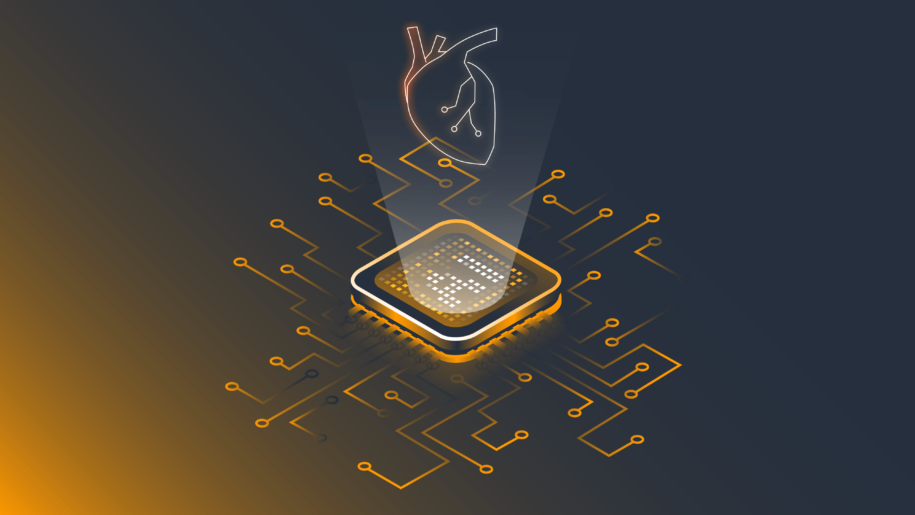Medical sciences already make substantial use of artificial intelligence and associated technologies in their operations. There is substantial evidence that AI algorithms perform on par or better than humans at critical tasks. Payers, care providers, and life sciences firms have already used various AI technologies. The main application categories include recommendations for diagnosis and treatment, patient engagement and adherence, and administrative tasks. Let’s explore how artificial intelligence in the healthcare is used to reshape the future of medicine.
Medical sciences make substantial use of artificial intelligence and associated technologies in their operations. Typical services and examples of artificial intelligence in healthcare include remote patient treatment, prescription transcription, increasing doctor-patient communication, medication discovery and development from beginning to end and patient diagnosis. Associated technologies, such as Artificial Intelligence (AI), Machine Learning (ML) and their parent field Data Science, can improve several areas of patient care and administrative procedures, pharmaceuticals and empower provider organizations.
Today, there is already substantial evidence that AI algorithms are performing on par or better than humans at critical tasks, for instance, in analyzing medical images or correlating symptoms and biomarkers from electronic medical records (EMRs) with the characterization and prognosis of the disease. Algorithms of artificial intelligence and machine learning intelligence are already outperforming radiologists at spotting malignant tumors and instructing scientists on how to create cohorts for expensive clinical trials.
But for many, it’s still unclear. What is artificial intelligence in the healthcare industry and what are the advantages of AI in Healthcare?
Like what are you reading? Click here to learn more about Three Ways AI Can Enhance the Customer Experience and Use Cases & Benefits of AI for Insurance Industry.
Let’s explore various forms of artificial intelligence in healthcare and the benefits they can provide to the healthcare sector.
The Beginning of a New Era: AI in Healthcare
Before the emergence of technology, the healthcare sector solely depended on human resources, which was time-consuming, less accurate with a lack of efficiency. With the recent advancements in AI, the industry has been steadily recovering from the previous limitations of human error. Currently, AI applications are expanding into fields once thought to be the only domain of human expertise, such as the healthcare sector. Artificial intelligence is a collection of technologies, and most of these technologies directly influence the healthcare field. Let’s understand how AI is used in the healthcare field to reshape the future of medicine.
Applications of Artificial Intelligence in Healthcare
Machine learning is a technique for fitting and training models with data to predict outcomes and enhance accuracy. One of the most prevalent types of AI is machine learning. A Deloitte poll of 1,100 US managers whose companies were already exploring AI found that 63% of the enterprises examined were using machine learning.
In healthcare, precision medicine is the most widely practiced used and implemented application of traditional machine learning. It predicts and fits data to models to learn what treatment protocols are likely depending on a patient’s profile/medical history characteristics and circumstances. A neural network refers to technology that has been available since the 1960s and has been well implemented and utilized for decades in healthcare research. The use of NLP ranges from classifying applications to determining whether a particular patient will contract a specific disease, given the pre-conditions and context to predict the accuracy. It formulates problems regarding inputs, outputs and weights of variables that associate inputs with outputs.
A typical application of deep learning and an example of AI in healthcare is neural network-based recognition and prediction of potential cancers. Deep learning is becoming more prevalent and being applied to radionics to see what a human cannot see behind the lens.
To learn more about artificial intelligence in healthcare: LETS CONNECT!
Natural Language Processing
The ability of a computer program to comprehend spoken and written natural language is known as natural language processing (NLP). In healthcare, the prominent applications of NLP involve creating, understanding and classifying patients, based on their treatment and preparing reports on their progress, i.e. radiology and conducting conversational AI to understand the patient.
Robots – Transforming the Healthcare Industry
Robots in the medical industry are transforming procedures of surgeries, enabling medical professionals to provide more intelligent, more comprehensive care to their patients
In hospitals, robots can independently clean and prepare patient rooms, helping limit person-to-person contact in infectious disease wards. The time required to identify, match and dispense medicine to patients in hospitals is downsized decreased by robots with AI-enabled medicine identifier software from Intel. It would not be wrong to say robots will lead the future of AI in healthcare.
“According to the 4th Annual Optum Survey on AI in Healthcare, 39% of healthcare leaders say that AI presents opportunities to ease the administrative burden, including automating administrative workflows.”
The medical field is widely considered one of the next big data frontiers to tame. It would not be wrong to say that data in healthcare will be the deciding factor in future medicine. Sometimes, crucial information might get lost in the thicket of trillions of data points. Therefore, many professionals in healthcare are shifting to AI to stop data hemorrhage.
“The 4th Annual Optum Survey on AI in Healthcare found that more than 99% of healthcare leaders agree that they can trust Ai for use in healthcare.”

According to a Morning Consult survey, 23% of US healthcare executives think AI and ML are beneficial for enhancing clinical results.
The Benefits of AI in Healthcare
The benefits of artificial intelligence in healthcare range from automation of workflows, monitoring patient reports and robot-led surgeries to modeling precise apps to study patients and much more. Despite a few challenges, including ensuring high data quality and the threat of data loss, AI for medicine holds enormous potential for the sector.
Increased diagnosis effectiveness, improved information exchange and better preventive care are just a few advantages that artificial intelligence in healthcare may bring. Some benefits are as follows
- Improved clinical productivity and increased care
- Personalized medical treatments
- Reduced time and cost of developing new pharmaceutical treatments
- Enhanced patient care and engagement
- Improved financial outcomes
Read more about How to Harness the Phenomenal Power of AI and AWS.
The Future of Artificial Intelligence in Healthcare
AI has a vital role to play in healthcare offerings of the future, as AI and related technologies are creating huge impacts on human society in many forms. According to Insider Intelligence, the use of AI in healthcare will increase at an annualized rate of 48% from 2017 to 2023.
AI is rapidly developing accurate models to learn about patients, i.e. neural networks, optimizing medical studies data, gathering and observing what a human eye cannot see – radiology, automation of administrative work and more, which is why AI will ultimately completely master healthcare and medicine medical domains in coming years.
Conclusion
Since AI is indisputably the future of healthcare, the question is not whether it is worthwhile to use it in medicine making us well past introductions of AI incorporation into the health sector. The billion dollar question now is, ’ When can we establish a fully AI run healthcare system?’
To summarize the future of AI in healthcare for years to come, below are some well rounded pointers to project what it will look like. We have collected some point pinners to summarize the future of AI in healthcare in years to come and beyond:
- Precise ML-NLP models to predict disease nature and healthcare applications to investigate thoroughly examine patients
- Enabling medical professionals to maintain patent history of prescribed treatments and generating reports from the data collected to optimize the process
- AI-enabled robots perform surgeries, reducing dependency and maximizing optimizing the repeat of successful surgeries
- Owing to AI and predictive analytics, we can now achieve incredible closure on various aspects of our lives, including everything impacting our health
- The healthcare sector is continuing to develop to ensure that it is better prepared for future outbreaks, such as COVID, using AI. Using AI, the healthcare sector is constantly upgrading itself with crisis management in case of any future pandemic outbreaks.
The role of AI in healthcare will transform the entire medical field in the future, given the magic-led advancements it has produced over the years.
Are you looking to use advanced artificial intelligence techniques to derive valuable insights from your data? Look at how NETSOL Cloud Services can provide intelligent data and effortlessly integrate it with your system for better, more effective results.


Leave a Reply